Academic Excellence at all Levels
Whether you are 3, 9, or 16 years of age, Beacon School is committed to helping every student flourish academically and holistically.
Whether you are 3, 9, or 16 years of age, Beacon School is committed to helping every student flourish academically and holistically.
At Beacon International School, education is a vibrant journey — carefully structured to spark curiosity, build academic excellence, and inspire personal growth. Our curriculum blends the best of global standards, including the renowned Cambridge International Curriculum (IGCSE and A-Levels), ensuring that every student thrives across each phase of their development.
From Pre-School to Primary, Beacon students engage deeply with core subjects such as English Language & Literature, Mathematics, General Sciences, ICT and Computer Science, Global Perspectives, and French Language.
Through a balance of inquiry-based learning, critical thinking, and real-world application, we prepare students to confidently embrace the future — wherever their ambitions lead. Join a school where every learner’s potential is nurtured with passion, purpose, and excellence.

Beacon School is full of colour and life! The walls of our preschool and primary classrooms are lined with visual representations and reminders of age-appropriate concepts. At all levels, lessons include projections of vivid images, colourful charts, relevant and more to reinforce understanding. Students also have ample opportunity to express themselves in writing, drawing, colouring and more.
Beacon teachers are active listeners and teach this skill to students. They also incorporate story-telling, music and sound in their lessons. Children at all levels are involved in team work and group discussions. Public speaking is encouraged from an early age and children do not hesitate to obtain further clarification after lessons where needed.
By the age of 4 years, Beacon students can already read and begin taking age appropriate story books home on a weekly basis. Our well-stocked library provides caters for a range of ages and interests. Children are provided with curriculum endorsed and age appropriate student books as well as workbooks which have lesson summaries and ample opportunity for repetitive reading and creative writing.
Hands-on activities are essential for Kinaesthetic or Tactile learners. We include creative projects, role-play, experimentation and instructional videos in our lessons to reinforce learning at Beacon School. It is not unusual for lessons to be held outside the classroom so that our lessons can be fun, practical and memorable.
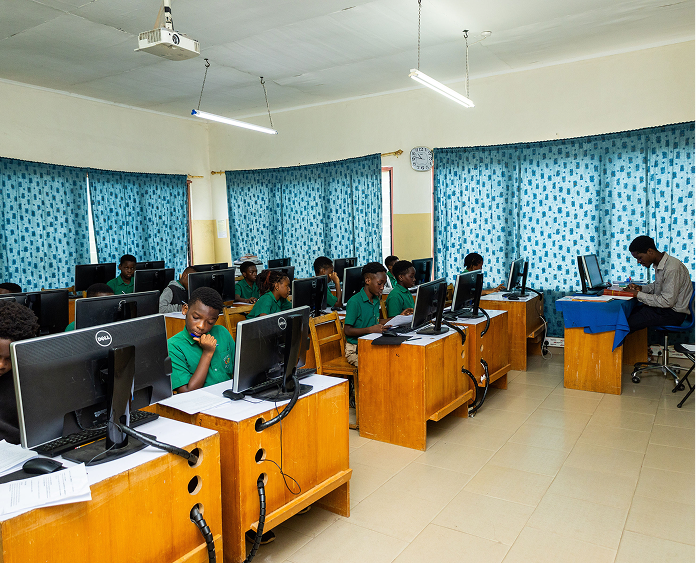
At Beacon International School, we provide a purpose-built learning environment that supports academic excellence, creativity, and holistic development.
Our classrooms are bright, spacious, and well-ventilated — furnished with age-appropriate, movable furniture and equipped with interactive boards and projectors. With intentionally small class sizes, we promote both individualized attention and collaborative learning.
Beacon’s ICT Laboratory is air-conditioned and fully equipped with modern desktop computers, networked servers, and monitored systems. Students from Year 1 to Year 13 use the lab to develop skills in research, Microsoft Office, design, programming, and robotics.
We also offer three state-of-the-art science laboratories — each tailored for hands-on exploration and exam-level practical work:
The Physics Lab includes electric stations, voltmeters, and apparatus for Cambridge-assessed investigations. Robotics lessons for lower secondary students are also held here.
The Chemistry Lab prioritizes safety with fume cupboards, vented chemical storage, and protective gear, allowing students to conduct experiments confidently and responsibly.
The Biology Lab features anatomical models, microscopes, dissection kits, and digital tools for simulations — creating a dynamic space for discovery and scientific inquiry.
Alongside our academic infrastructure, we provide excellent boarding facilities, safe and reliable transportation, nutritious catering services, and a well-stocked library for all age groups. Supervised high-speed internet supports safe digital access and 21st-century learning.
Beacon is committed to continually expanding and upgrading our facilities to meet the evolving needs of our learners and to ensure every student thrives in a safe, inspiring environment.
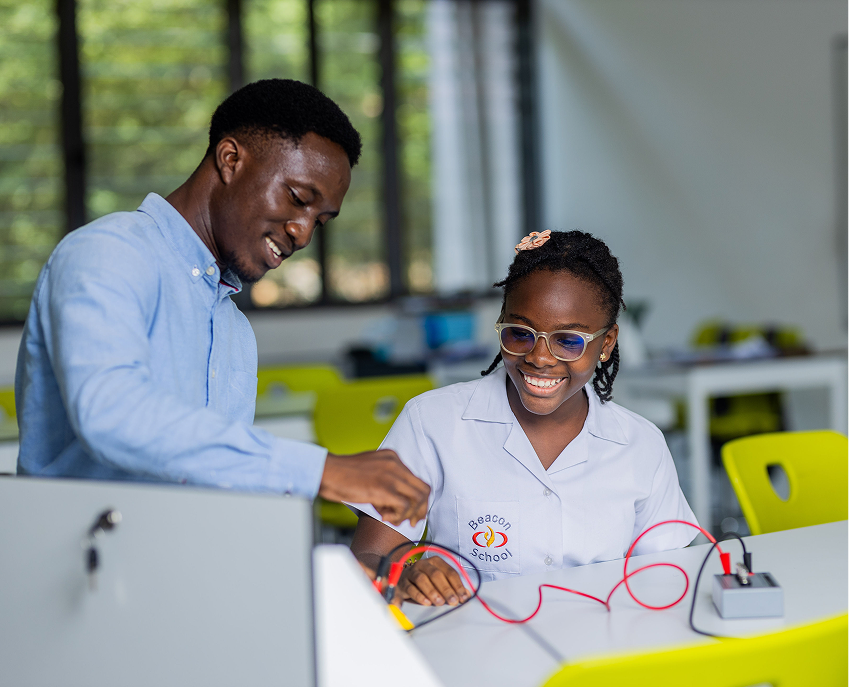
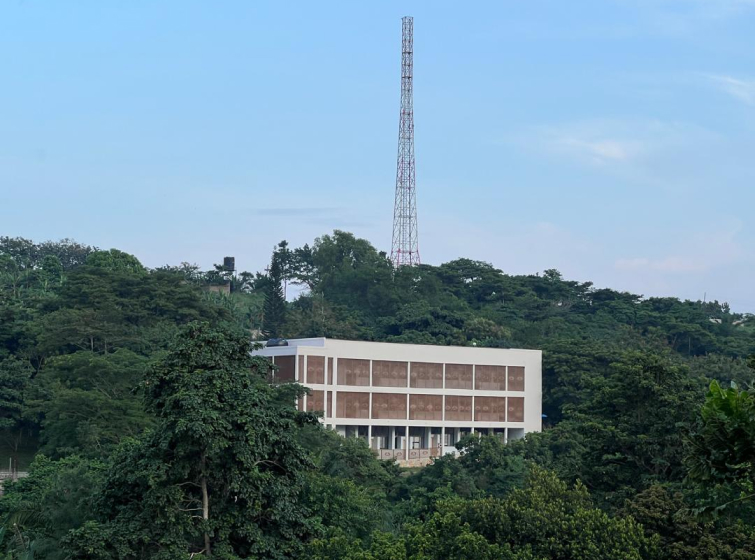
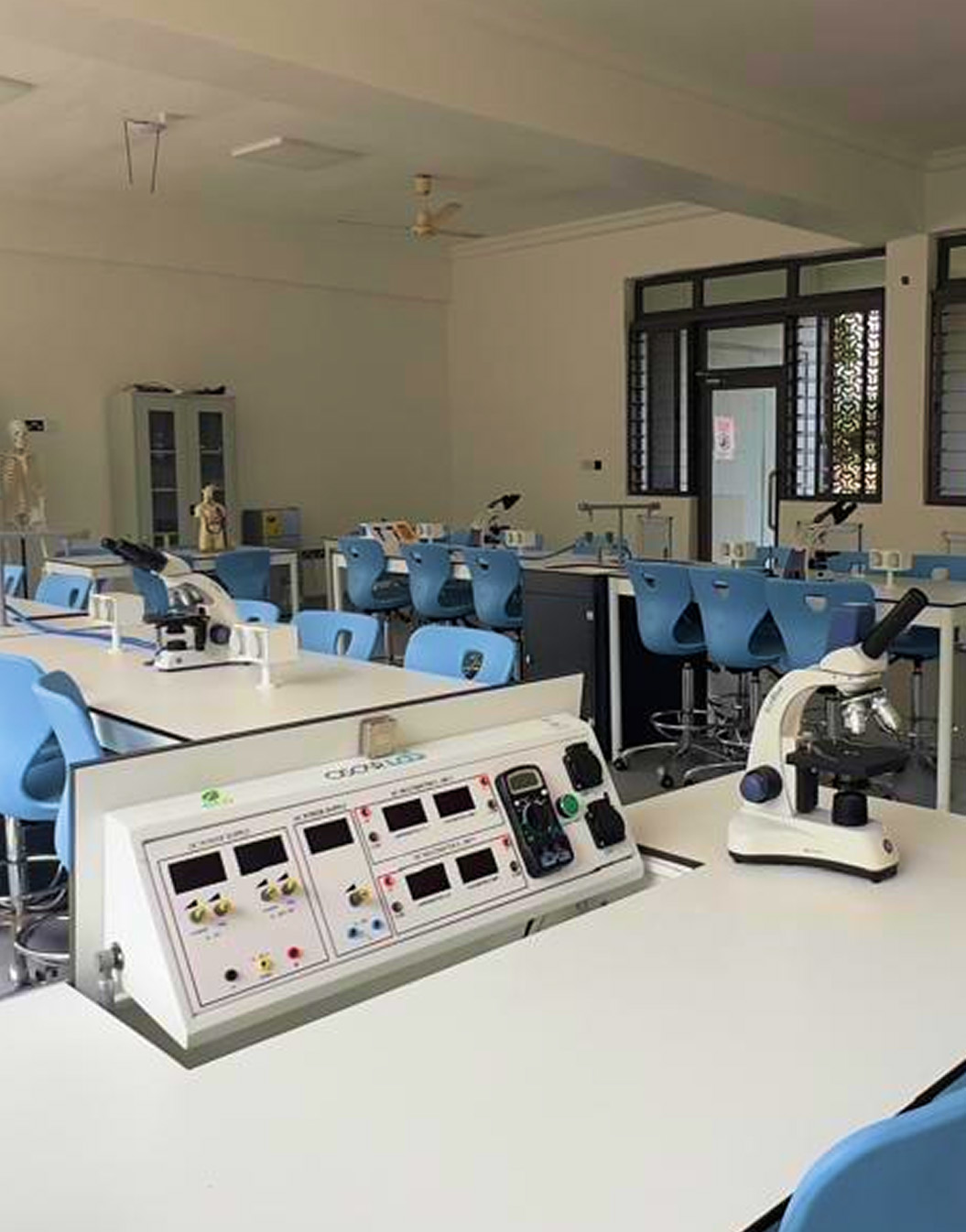
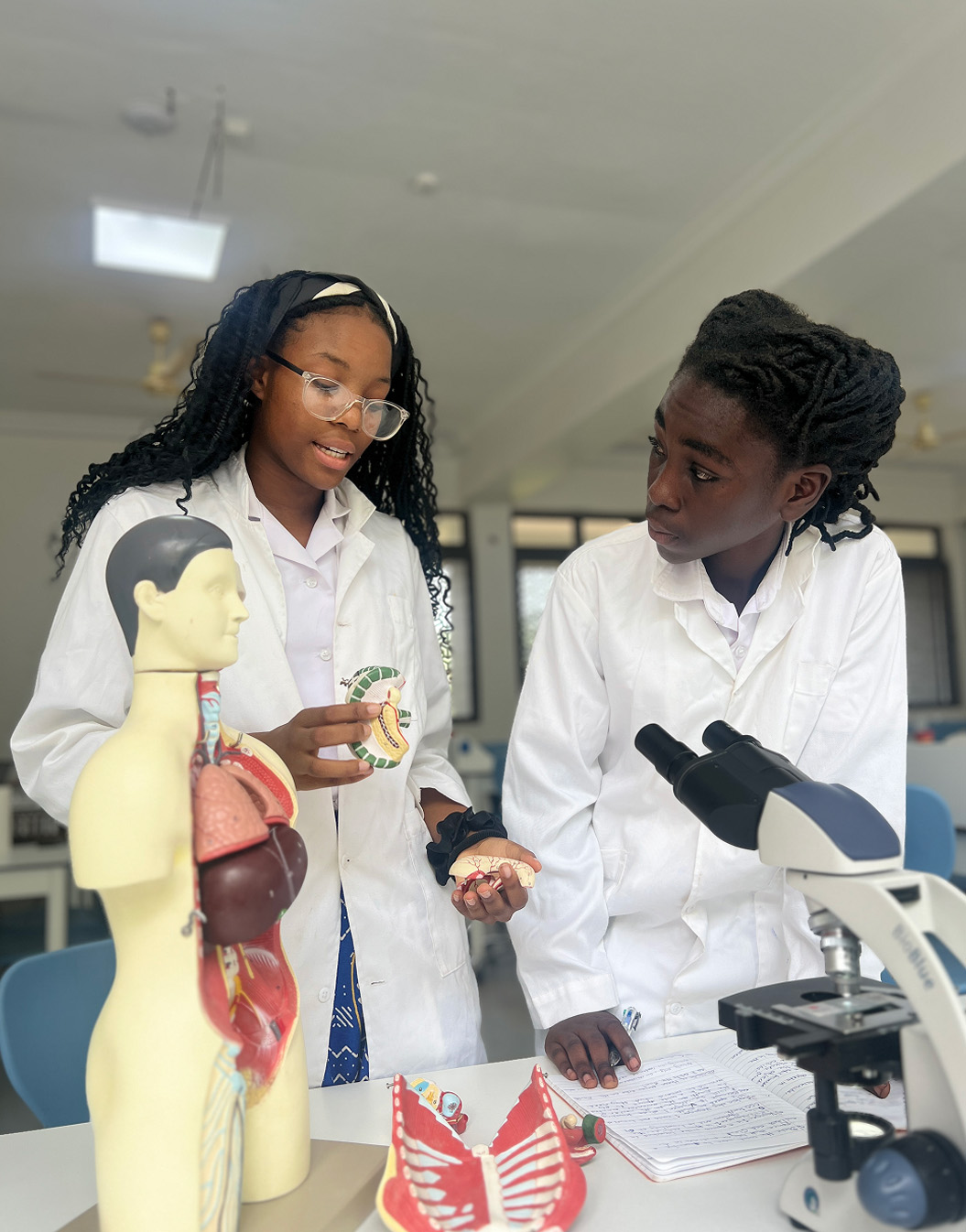
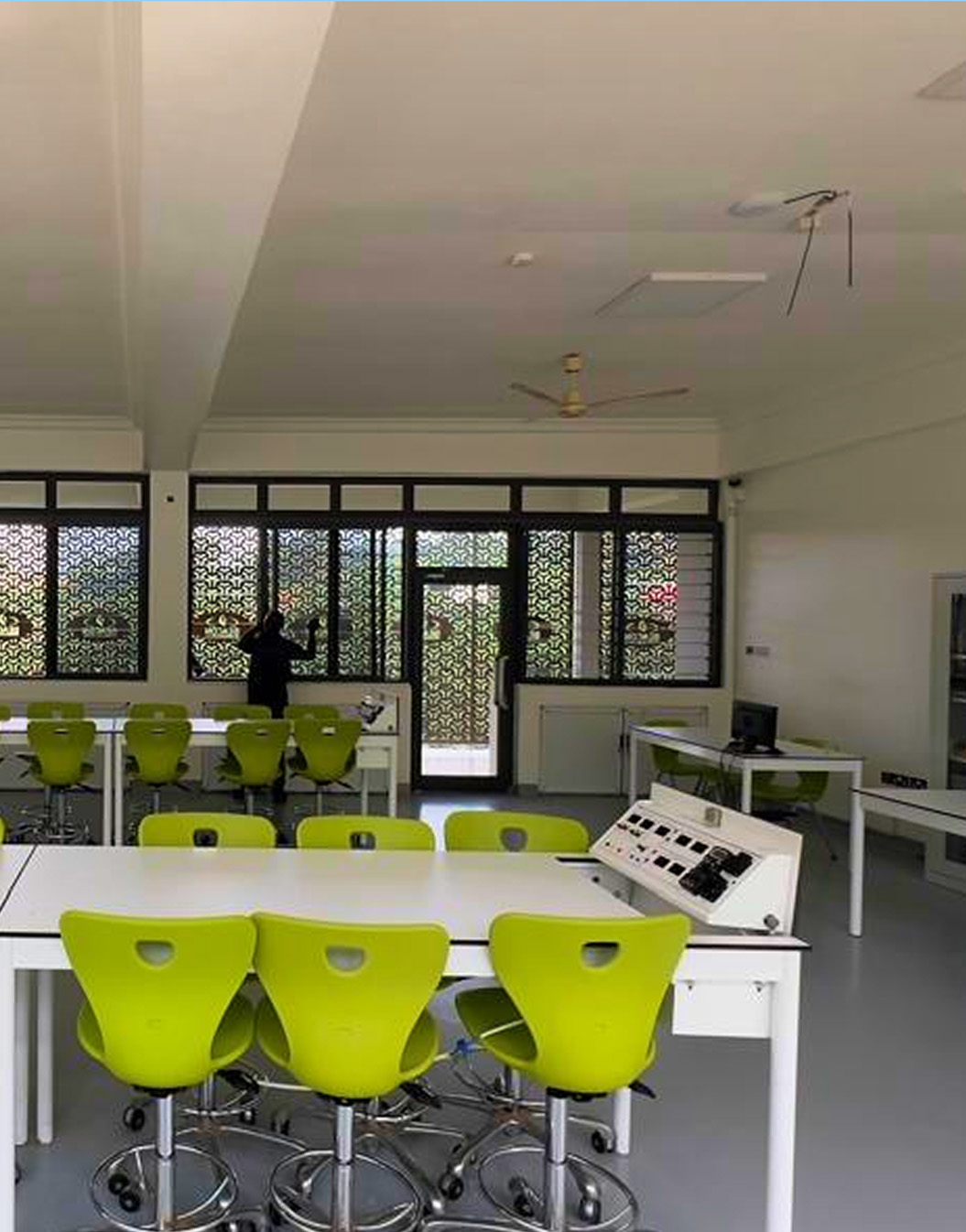
In line with general practice for international curricula, class placement at Beacon School is based on age and not high achievement. This gives children the room to develop holistically within their age bracket. A child whose developmental markers fall below the expected could temporarily be placed in a class below their age whilst they are supported to catch up with their peers. Where all developmental markers are advanced beyond the child’s age, the child is not held back but placed according to their level of development.
No, they do not. Beacon School uses an Enhanced Curriculum and not the Cambridge Curriculum at Primary and so we do not take the Cambridge Primary Checkpoint. The Cambridge Checkpoint provides a benchmark for learner progress, giving schools feedback on a child’s strengths and weaknesses. Beacon School assesses these metrics for Primary students using our internally generated exams. Unlike the IGCSE and the A-Levels, Cambridge Checkpoint exams are not required for university entry.
Bible Time is compulsory for all students and can be found at least 2 times a week on our class timetables. The emphasis is good moral behaviour taught through Bible verses, songs and stories. Discipleship at Beacon School, however, does not end at Bible Time – it runs throughout the day. We are free to pray with the children openly if they are facing any challenges and we point them to God’s word in correcting them so they know that God has the ultimate say in their lives.
The IGCSE is the international equivalent of the GCSE. However, the subjects studied at IGCSE reflect a more international approach to learning, so that students can study topics relevant to their own country, particularly in subjects such as history, geography and literature. Some schools in the UK (over 2600) now teach the IGCSE rather than the GCSE as they believe it gives their students an extra edge when applying to universities and because of the broader scope of subjects and the possibilities for coursework.
Cambridge qualifications are recognized and accepted in over 160 countries worldwide and as such have received accreditation in tertiary institutions in those countries. In the USA alone Cambridge qualifications are recognized in over 500 universities including all the Ivy Leagues.